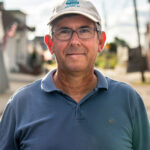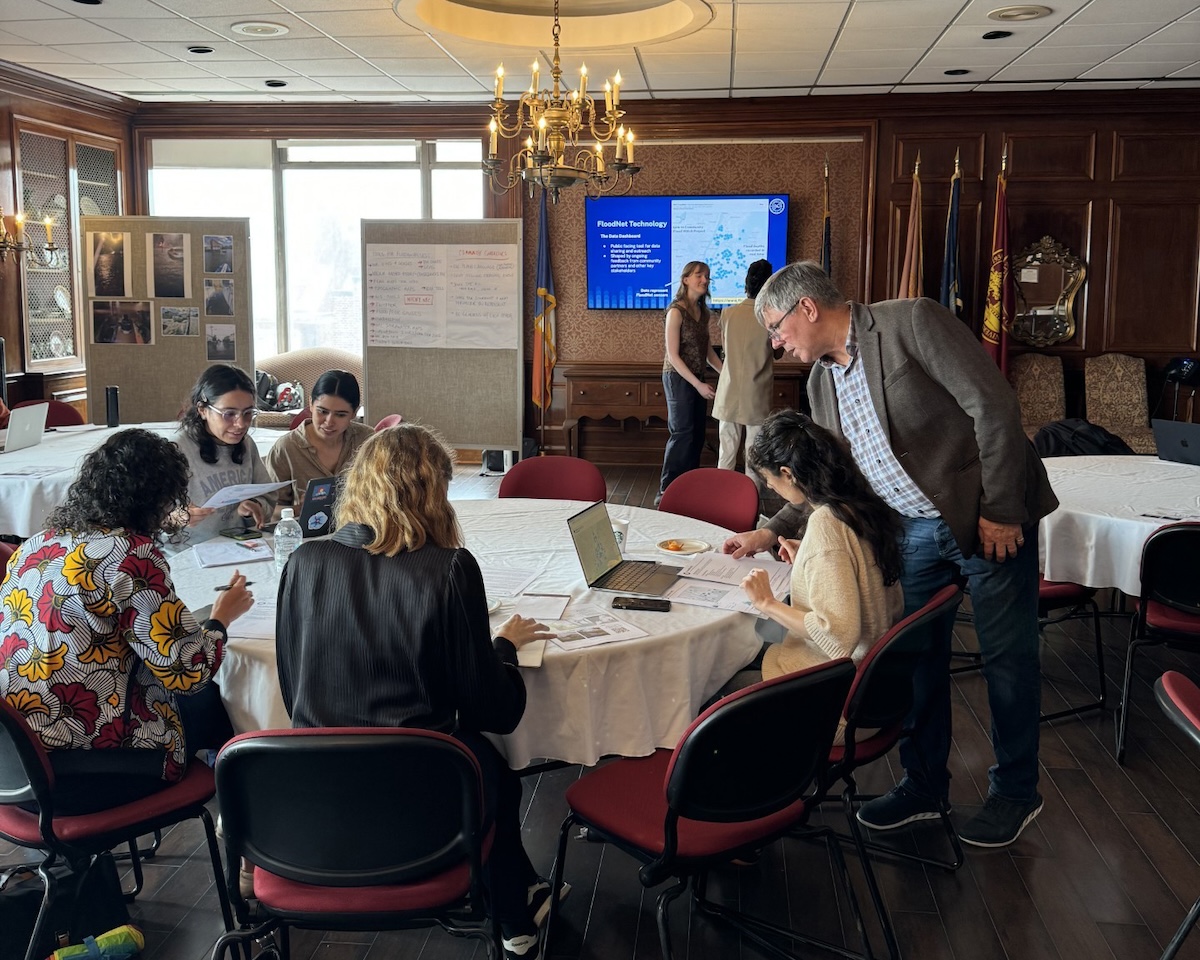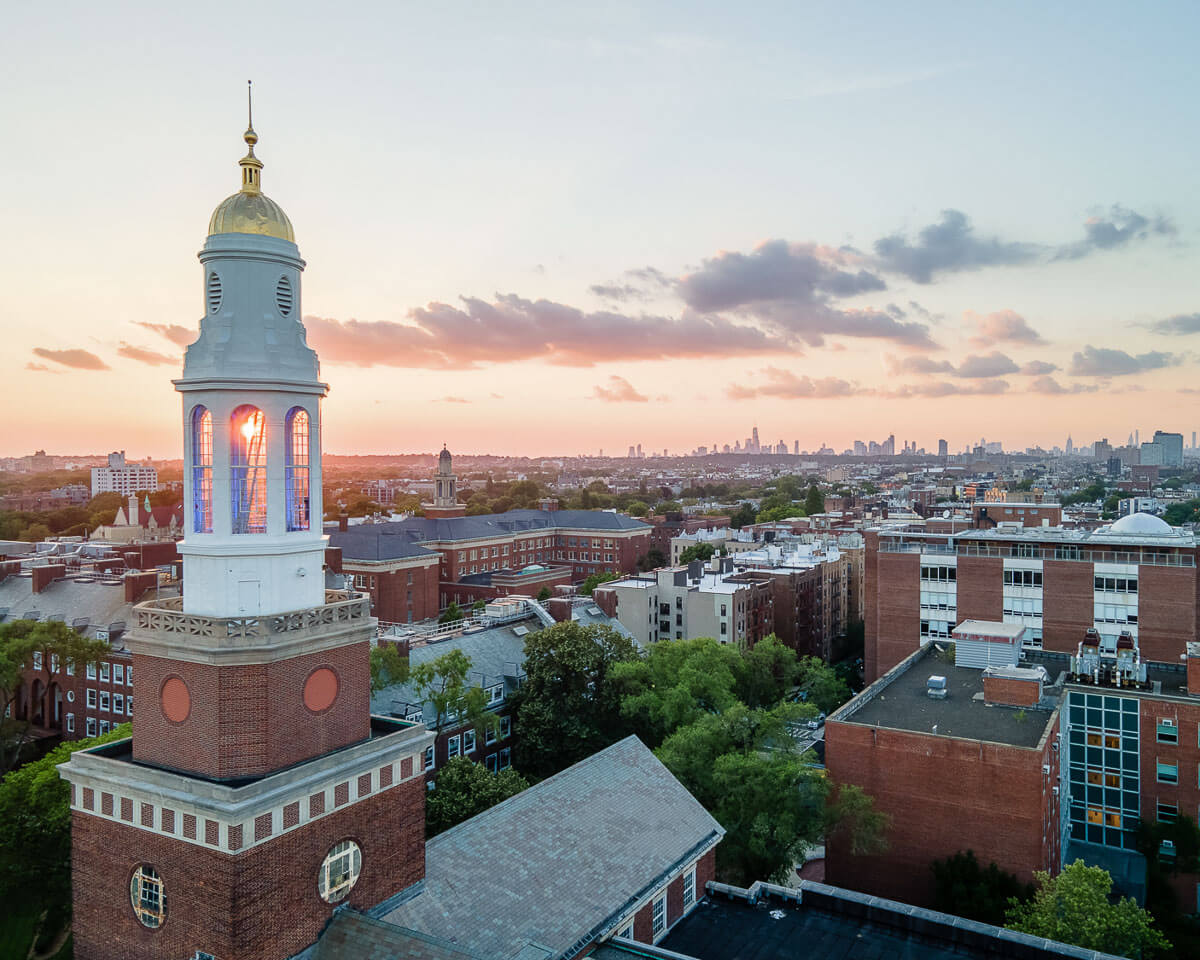To highlight Climate Week, Brooklyn College hosted an event showcasing the FloodNet project—including a data dashboard that reports street-level flooding detected by ultrasonic sensors—for residents who experience flooding in their neighborhood or work on climate adaptation solutions driven by technology.
Launched in 2022 with the help of Brooklyn College Professor Brett Branco, Department of Earth and Environmental Sciences and the executive director of the Science and Resilience Institute at Jamaica Bay at Brooklyn College, FloodNet is a consortium of researchers, government agencies, and community-based organizations that addresses flooding issues through a first-ever, free online tool that lets communities and agencies know where, when, and how quickly flood waters are rising.

Brett Branco.
“We typically do these workshops in neighborhoods affected by flooding, but since it is Climate Week, we decided to invite people to Brooklyn College to learn more about the technology,” said Branco. “These workshops help ensure that the data we produce are useful and usable by people, so we can be better prepared for flooding.”
During the workshop, titled “Engaging Communities With Flood Sensor Data and Storytelling,” attendees used data from flood sensors installed across New York City to get a firsthand look at how the technology can work for them and their communities.
FloodNet was developed as a collaboration between researchers at the Science and Resilience Institute at Jamaica Bay (SRIJB) at Brooklyn College, NYU Tandon’s Center for Urban Science and Progress (CUSP), and the Advanced Science Research Center at the CUNY Graduate Center (CUNY ASRC), in partnership with the NYC Mayor’s Office of Climate and Environmental Justice and the NYC Office of Technology and Innovation, and with the financial support of the C2SMART Tier 1 U.S. Department of Transportation University Transportation Center at NYU Tandon, the NYU Marron Institute, and the CUNY Office of Research.
On Sept. 9, Mayor Eric Adams said the city is on pace to have 500 flood sensors installed in priority flooding areas by 2027. The 200th sensor was recently installed in Corona, Queens’ Louis Simeone Park, earlier in September.
The event was co-hosted by the Science and Resilience Institute at Jamaica Bay, New York Sea Grant, the Mayor’s Office of Climate and Environmental Justice, and FloodNet, in partnership with the New York Climate Exchange.



